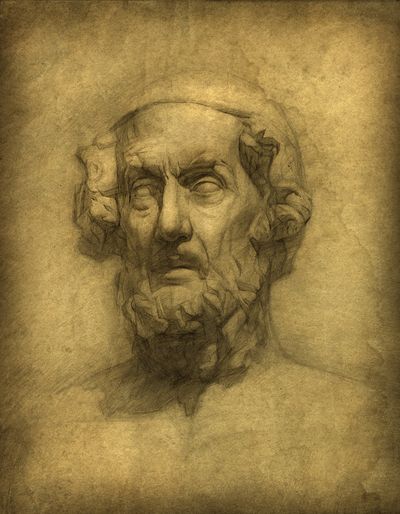November 1, 2019
From Gerald R. Lucas
In book XVI of Homer’s Iliad, the narrator employs the poetic device of apostrophe several times. The rhapsode occasionally addresses Patroclus as “O my rider” breaking out of his third-person point-of-view. With this interjection, the narrator calls attention to Patroclus and aligns the audience’s sympathies with him. From the outset, Patroclus’ death is foretold, but the apostrophe emphasizes the impending doom with a pathos that no other characters receive. Literally, Patroclus rides in a chariot, but “rider” could also suggest that he is riding on the waves of fate, washing him to his doom.
